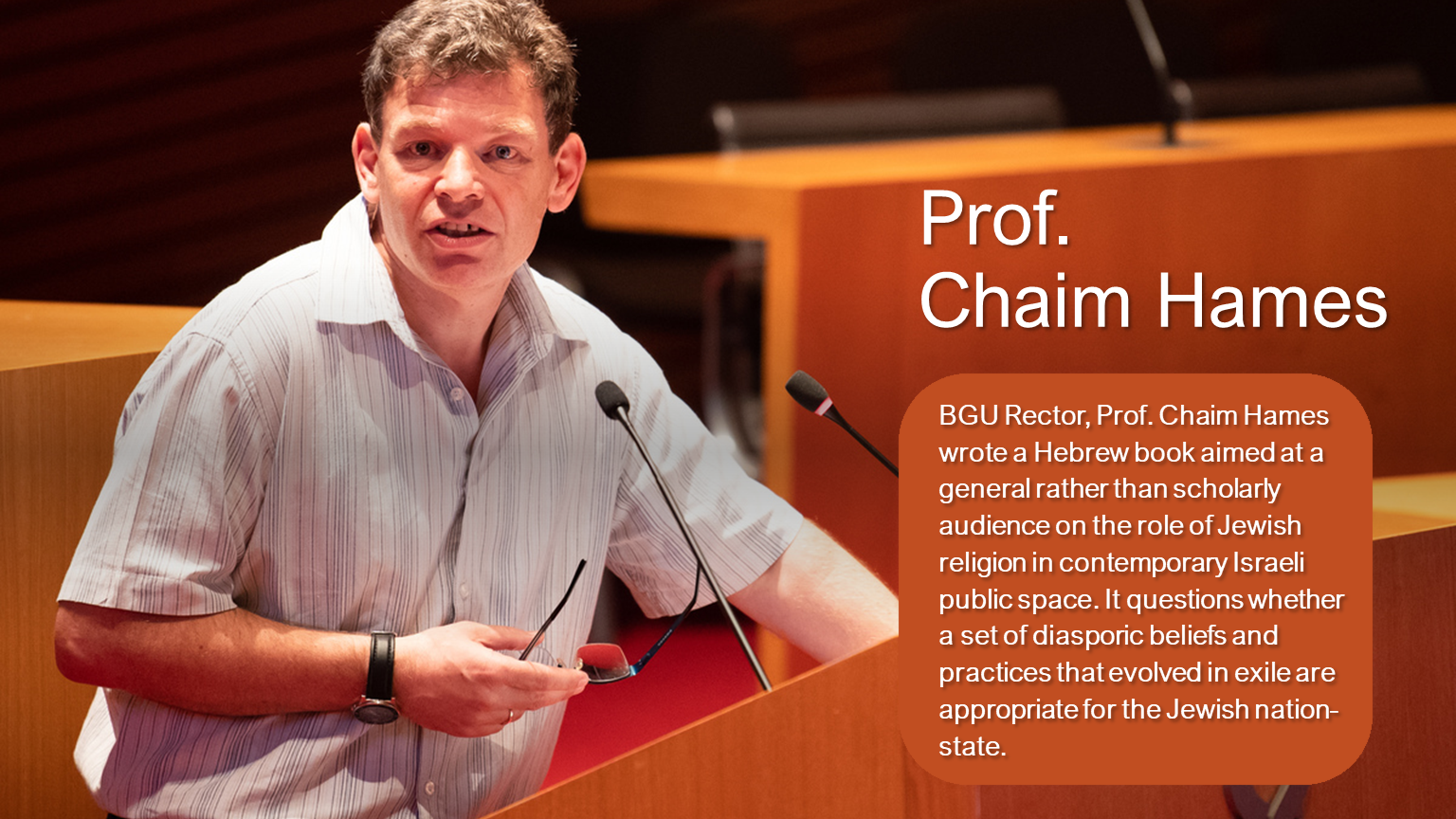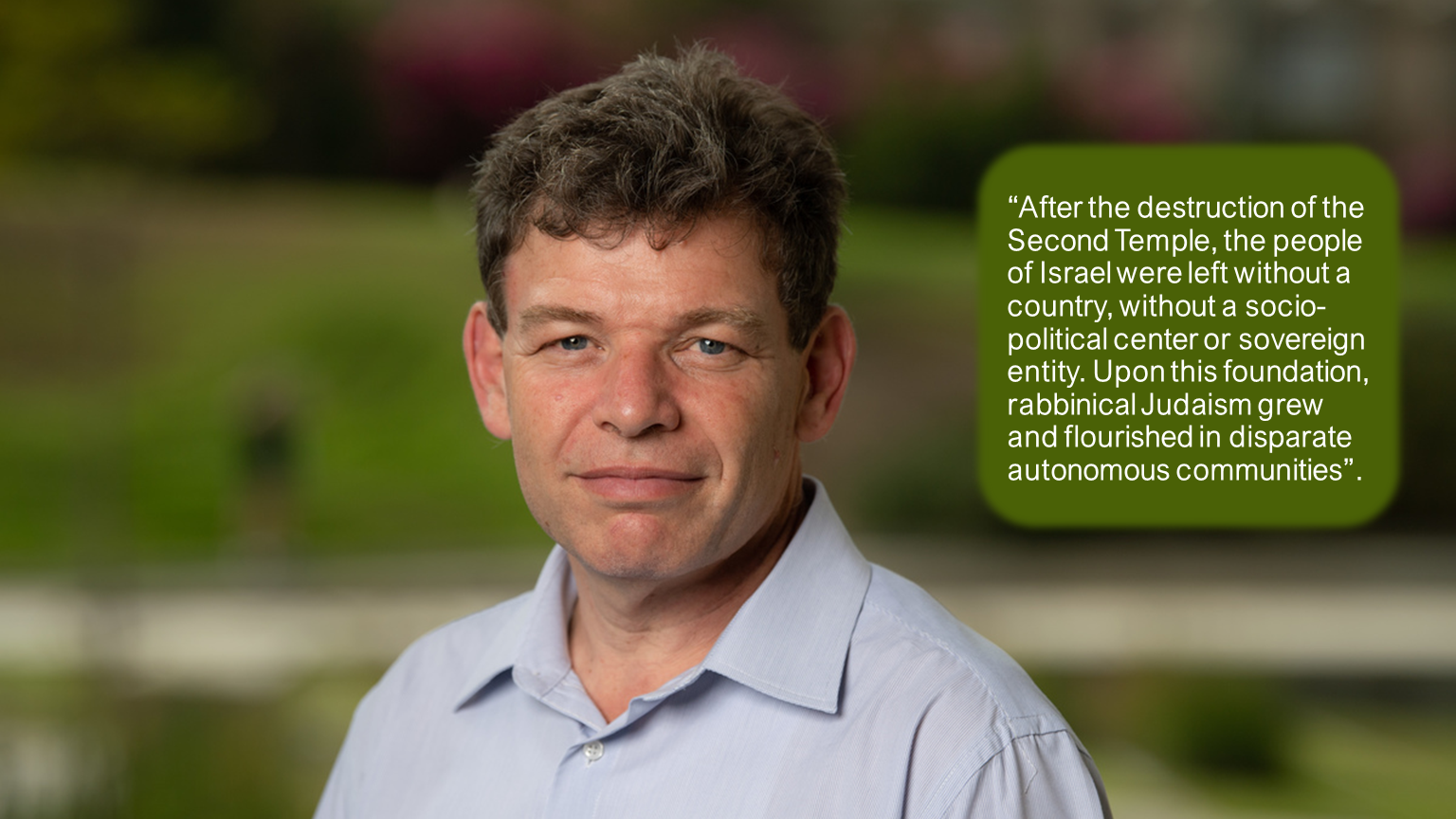
From the June 2021 (129) issue of Aleph Bet Gimel Magazine
Now that the Jewish people have been redeemed from exile and the State of Israel established, is rabbinical Judaism in its present form still necessary? Can rabbinical Judaism adjust to the situation where Jews are the sovereign rulers of their land? Can it provide real answers to the existential needs of Jews living in Israel today?
These questions and others are the subject of BGU Rector Prof. Chaim Hames' fascinating Hebrew book, I (do not) believe: Israel and Judaism - past, present, future. According to Hames, the Jewish God (quite different from the biblical God) has undergone many transformations since being created by the rabbinical sages and continues to command central stage in myriad forms in 21st century Israel.
Like rabbinical Judaism itself, it is a diasporic God, unable to fit in and find its place in the democratic and independent state of Israel. “It is unable to adjust to new conditions, and its representative are unwilling to rethink the place of God in a free, modern and pluralist society," he writes critically. This has created the odd situation, where God remains in exile within the redemptive situation that is the State of Israel. Unfortunately, as time has passed, God, together with many of its rabbinical representatives, has become an unwelcome alien figure for many."
Chaim Hames was born in England in 1966. At age 12 he made aliya with his parents and studied at Midrashiyat Noam, a yeshiva high school in Pardes Chana. After completing his military service, Hames studied history at the Hebrew University in Jerusalem. He returned to England in 1991 to continue his studies at Cambridge University where he obtained a PhD in medieval history.
Upon his return to Israel, Hames was hired by Ben-Gurion University as a member of the Department of General History. He chaired the department between 2011 and 2015, and in 2016 became the Dean of the Faculty of Humanities and Social Sciences. In 2018 he was elected Rector of the University, a position he still holds today.
Hames' research deals with Jews and Christians during the Middle Ages and the renaissance periods, as well as the relationships between the world's three major monotheistic religions, mysticism, philosophy, religious conversion, Latin translations of the New Testament, and inter-faith polemics.

His academic activities and research achievements won Prof. Hames a prestigious I-Core grant to establish an Israeli Center of Excellence for research into religious conversion and interfaith encounters. In 2015, he was invited to join the scientific committee charged with selecting Centers of Excellence in the humanities and social sciences in Norway – a clear sign of international recognition of the excellence of the Center at BGU and of the University in general, and recently he was elected to the Academy of Europe (Academia Europaea).
“Judaism as we know it today," says Hames, “emerged in a specific historical-national context. After the destruction of the Second Temple, the people of Israel were left without a country, without a socio-political center or sovereign entity. Upon this foundation, rabbinical Judaism grew and flourished in disparate autonomous communities. Its rabbinical leaders offered a way of life that suited the existential needs of diasporic Jews, and the rabbinical interpretation of the Torah became entrenched as the cornerstone of Jewish identity up until this day."